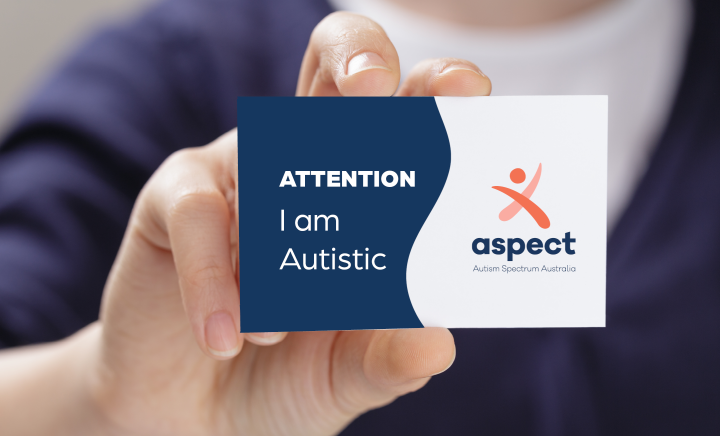Autism can be tricky to define
Autism is a neurodevelopmental condition that affects how a person’s brain develops and functions, and an estimated 1 in 40* people are on the autism spectrum. Autism can be diagnosed in people of all ages, all cultural backgrounds and economic status.
*Based on prevalence studies conducted over the past five years
Heading
Heding 2
Social interactions
Many Autistic people feel uncomfortable in busy and complex social settings – and may find it easier connecting through online chat, games or video.
Autistic people can also experience difficulty when it comes to reading social cues or understanding how non-Autistic people think.
Regulating emotions can be a challenge, and some Autistic people prefer their own company to their peers’ (both in the playground and into adulthood). As a result of all this, building and maintaining friendships can be a challenge.
Sensory awareness
Many Autistic people have heightened sensory awareness – making them more sensitive to sounds, smells, tastes and physical touch. As a result, they might:
- Feel distressed or overwhelmed by things like loud noises, bright lights, the feel of certain fabrics or ‘up close and personal’ experiences like getting a haircut.
- Try to block out discomfort by covering ears or hiding in
quiet places. - Repeat certain movements when stressed or excited, such as hand flapping or pacing.
- Seek reassuring sensory experiences, whether it’s running hands along certain textures, sniffing objects or flicking fingers in front of eyes.
Communication preferences
Compared to neurotypical people, those on the autism spectrum can communicate in a way that’s overly honest and direct, sometimes to the point of being blunt! They may have little interest in small talk, have difficulty understanding sarcasm or humour, and can find non-verbal communication, such as gestures and facial expressions, hard to read.
Due to the way the Autistic brain processes information, they may take a little longer to understand spoken information, and sometimes repeat words or phrases in a way that can seem unusual or out of context.
Strengths and interests
Of course, personal strengths vary – but many Autistic people are particularly good at logical or visual thinking, remembering facts and figures, having a keen eye for detail, and understanding technology.
A very strong focus and deep interest in a specific topic or activity is another characteristic that a lot of Autistic people share, making them experts in a chosen area.
On a personal level, Autistic people often display character strengths such as honesty, loyalty, reliability, persistence, fairness and kindness.

Autism Alert Card
How we describe autism
Aspect respects the rights of all individuals to choose the language that best describes themselves or autism. Aspect may use identity-first language (i.e. Autistic person) or person-first language (i.e. person on the autism spectrum) in our content, reflecting individual’s preference.
Autistic person
Guided by the perspectives and preferences of the Autistic community and international research, Aspect typically uses respectful, strengths-based, identity-first language – such as "Autistic person".
Autism Spectrum Disorder (ASD)
Autism Spectrum Disorder (ASD) is a diagnostic term used by clinicians to describe the range of neurodevelopmental differences that shape how an Autistic person thinks, communicates and experiences the world. The word “spectrum” reflects the diversity of Autistic experiences, acknowledging that each person has their own strengths, challenges and support needs. Although ASD is still used in formal diagnoses, Aspect prefers not to use the term in everyday language because “disorder” suggests something is wrong or needs fixing.
You can learn more about how we talk about autism here.
Autism is a different brilliant®
Aspect's approach – which guides the way we provide support and services to Autistic participants, students and their families/carers – is based on the idea of a different brilliant®. This approach:
- Respects difference and diversity
- Builds a person’s skills based on their strengths, interests, aspirations and support needs
- Develops autism-friendly environments
- Supports others to understand and embrace autism and to develop respectful supportive interactions.


